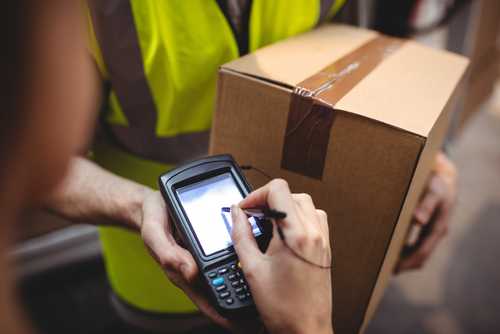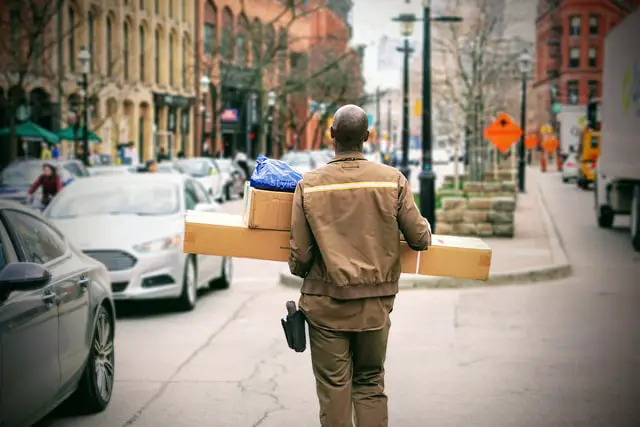In today’s digitally connected and convenience-driven society, courier, delivery, and pickup services have become essential. From individuals sending gifts and personal items, medical facilities transporting vital and time-sensitive samples and organic material to and from laboratories to businesses managing supply chain logistics, these services reinforce modern commerce, communication, and everyday life. Whether it’s a local parcel drop-off or an international shipment, the value these services offer is extensive and diverse, enhancing efficiency and connectivity across various sectors.

Explaining the Three Services
Courier and pickup services facilitate the efficient and speedy transportation of items, whether they are letters, packages and parcels, documents, or other goods, from one location to another, often with a faster turnaround time than traditional postal services. And let’s face it, postal services in South Africa are pretty dismal at present. One of the most used applications is the delivery of items bought online from businesses and shops. So many of us now use online shopping as opposed to actual physical shopping because of its ease, often better prices, and ability to shop in comfort without standing in long queues at the checkout counter.
Courier Service
Courier services typically involve the secure, fast, and often trackable transport of packages or documents from one location to another. They are generally more personalised and time-sensitive than traditional postal services.
Couriers pick up items from a designated location, often the sender’s business or home, and deliver them to the recipient’s address. This service is particularly useful for businesses and individuals needing rapid and reliable delivery of documents, packages, or goods, particularly since courier services are more reliable than postal services, offering tracking options, door-to-door delivery and speed of delivery. Businesses employing remote employees use courier services in the transport of essential documentation, as well as companies that sell products online and need delivery options that are hassle-free and speedy for their customers. Rather than needing to visit a post office or a physical store, customers can schedule pickups or deliveries that fit their schedules, saving valuable time and effort.
Pickup Service
Pickup services enable customers to conveniently collect items from designated locations. This includes returning products to retailers, sending parcels from home, and streamlining business logistics.
Pickup services provide significant convenience and save time, as senders can avoid the hassle of travelling to a shipping location to drop off their shipments. Many courier companies offer pickup options, enabling customers to schedule a collection time that suits them. These services allow for the collection of items from designated locations, such as collecting or returning goods to retailers, sending parcels directly from home, or managing business logistics efficiently.
Delivery Service
This includes the wider movement of goods across various sectors, ranging from retail purchases and online orders to food, groceries, and furniture deliveries to homes and businesses.
Collectively, courier, delivery, and pickup services ensure the efficient, timely, and reliable transportation of goods across nearly every industry. Because they are fast and efficient, they are also financially viable to companies, allowing accountants and bookkeepers to plan and track shipment costs and schedules more accurately.
What Are the Types of Courier Services Available?
Courier services can be broadly categorised based on delivery speed, geographical positioning, and the type of items being transported.
These categories can be described thus:
Based on Delivery Speed:
- Same-Day Delivery: Ideal for urgent packages and documents that need to be delivered within city limits.
- Express Delivery: Faster than standard services, often offering overnight or next-day delivery options.
- Overnight Delivery: Guarantees delivery by the next business day, making it perfect for time-sensitive items.
- Standard Delivery: A reliable and cost-effective choice for non-urgent shipments.
Based on Geographical Positioning:
- Local Services: Cover deliveries within a specific city or region
- National Services: Facilitate shipping across the entire country.
- International Services: Enable the sending of packages and documents to destinations worldwide.
Based on Item Type:
- Freight Services: Designed for larger or bulk shipments, including pallets and containers.
- Pallet Services: Specialised in transporting goods on pallets.
- Bulk Services: Cater to businesses needing to ship large quantities of items.
Other Types:
- Onboard Couriers: Couriers who personally accompany shipments on commercial or chartered flights, ensuring continuous oversight and immediate resolution of any issues during transit.
- Hand-to-Hand Couriers: A premium delivery method involving direct, in-person handoff from the courier to the recipient, providing maximum security and accountability.
This wide range of courier services ensures that there is an option to meet virtually any shipping need, from personal deliveries to complex business logistics.
Why Are These Services so Valuable?
As with many aspects of our rapidly evolving consumer landscape, courier, delivery, and pickup services have brought greater freedom, efficiency, security, and reliability to both personal and commercial transactions within the marketplace.
The main advantages have been shown in the following spheres:
- Advancing E-Commerce and Business Expansion
The rapid rise of e-commerce has been significantly influenced by the dependability of courier and delivery services. Online retailers depend on these providers to guarantee that products arrive at customers’ doorsteps swiftly and securely. With the introduction of same-day and next-day delivery options, customer expectations have soared, making efficient delivery a crucial element of brand loyalty and competitive advantage. - Supporting Small Businesses and Entrepreneurs
For small businesses and startups, courier and pickup services eliminate the burden of costly logistics operations. By using these services, business owners can concentrate on their core offerings while still fulfilling customer demands for fast and reliable shipping. - Supporting Local Economies
Local courier services play a valuable role in supporting regional economies by employing individuals from within the community. When customers choose local providers, they not only enjoy faster, more personalised service but also contribute directly to the economic well-being of their area. These services often have an in-depth understanding of local traffic patterns, shortcuts, and neighbourhood logistics, allowing for more efficient delivery routes and greater overall reliability - Enhancing Convenience for Individuals
From receiving groceries at the doorstep to delivering important documents across town within hours, individuals benefit immensely from these services. Busy lifestyles, remote work, and health-related concerns (such as during the COVID-19 pandemic) have further increased the demand for on-demand pickup and delivery options. - Being Critical in Healthcare and Emergency Services
Medical couriers play a crucial role in delivering time-sensitive items like lab samples, medications, and medical equipment. In emergencies, reliable courier services can save lives by ensuring urgent deliveries reach their destination without delay. - Enabling Global Reach
Courier services have revolutionised the realm of international shipping. The evolution of e-commerce has enabled businesses to sell their products on a global scale. Efficient courier services empower small and medium-sized enterprises to compete more broadly by enabling access to customers in various countries with nearly the same ease as local transactions. This expanded reach not only opens new markets but also creates diverse customer bases, thereby driving substantial business growth.
Technology and Future Advances
Technological innovation is rapidly transforming the delivery landscape. Features like real-time tracking, mobile apps, automated dispatch systems, and even drone deliveries have elevated customer expectations in their demand for greater transparency, speed, and flexibility. In response, courier companies are steadily evolving, using advanced technologies to streamline operations and enhance service delivery and tracking.
In the future, the rise of autonomous delivery vehicles, smart lockers, and AI-driven logistics will undoubtedly further revolutionise and improve the industry, making transport of goods smarter, faster, and more efficient than ever before. As yet, much of this is still in the planning stage, but smart lockers have been around for some time already.
Final Thoughts
Courier, delivery, and pickup services have evolved far beyond occasional conveniences. They are now fundamental components of modern infrastructure. These services facilitate commerce, connect people, and support the seamless operation of countless daily activities. As demand for fast, reliable, and efficient logistics continues to grow, so too does the importance of these services in keeping both personal and professional life running smoothly.
Significantly, they have also provided definite advantages to smaller businesses. Previously, only large companies with dedicated fleets could offer delivery services. Today, thanks to third-party couriers and integrated logistics apps, even small businesses and solo entrepreneurs (solopreneurs) can provide the same rapid delivery options as major competitors, consequently enhancing customer satisfaction and expanding their market reach.
While they may operate behind the scenes, courier, delivery, and pickup services play a critical role in our connected world. They support economic growth, simplify everyday tasks, whether delivering across town or shipping internationally. Their impact is far-reaching, unobtrusively influencing the way we live, shop, and do business.

